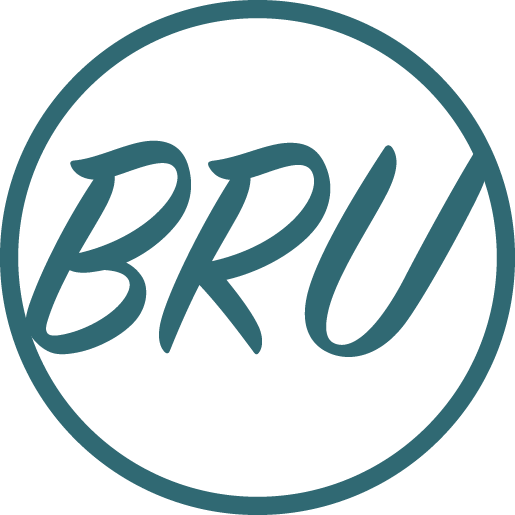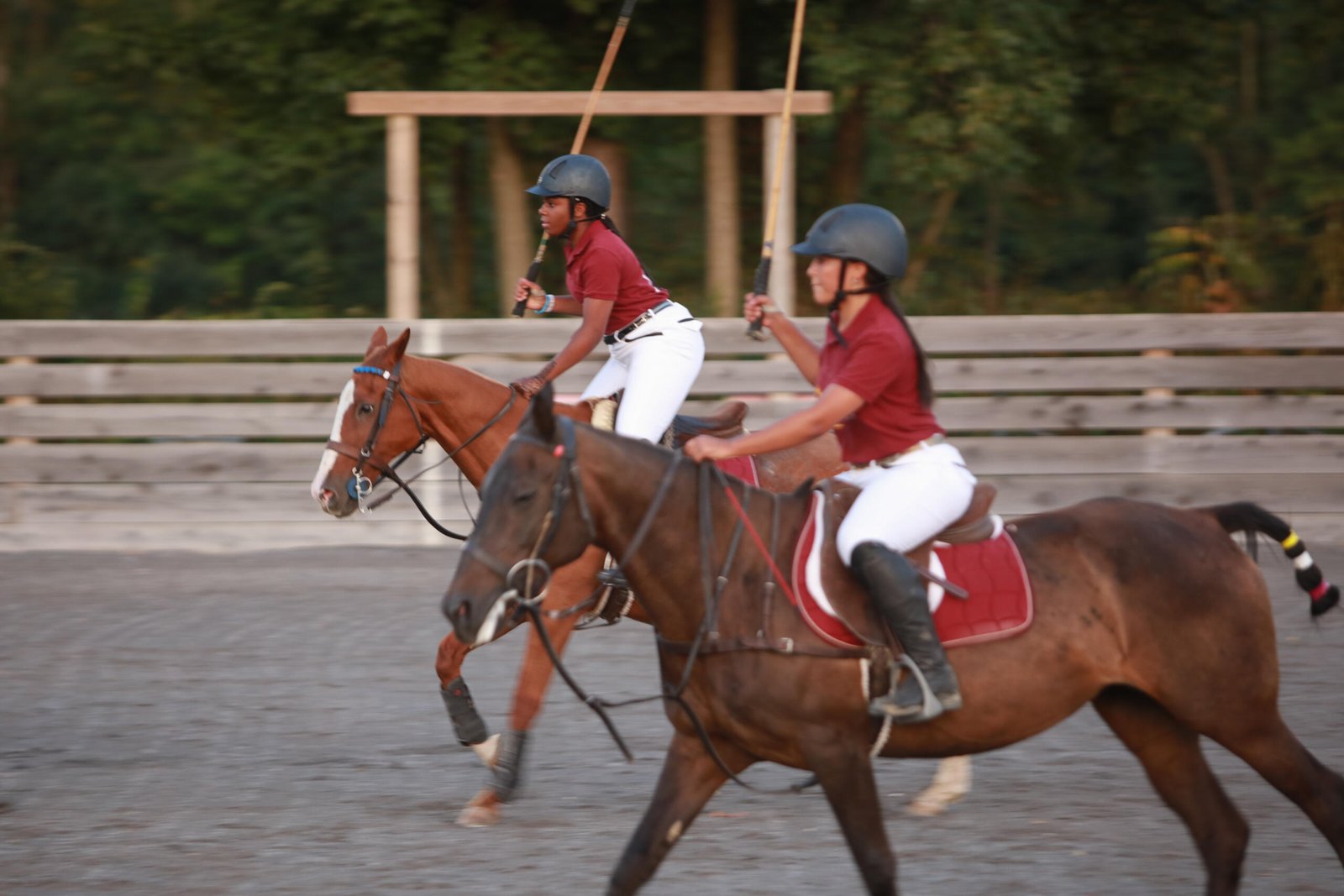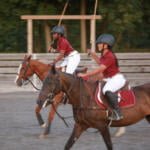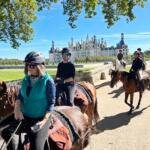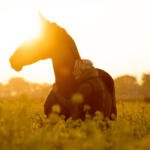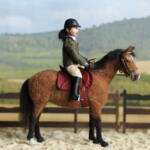After lifelong equestrian Laurie Scott ushered two daughters through successful junior show careers, she refocused on her own riding goals and fell in love with a horse sport she didn’t expect—polo.
Now, she’s determined to spread the joy of polo through Great Strides Equestrian Foundation. Learn how her efforts provide opportunities for young, under-resourced riders in life and on the polo field.
This interview has been edited for length and clarity.
BRU: How did you get into polo?
LS: I’ve been riding for 45 years. I used to ride hunters and equitation, but six years ago, I attended a polo match here in Saratoga Springs, New York, and met a woman named Mary Flaherty who invited me to play.
I was ready for something new, so I tried it. I was like, “Riding combined with a game? This is great!” It was so much fun.
The only levels of polo I’d ever seen before were 22-26 goal in Florida, which is the pinnacle of the sport, so I hadn’t even realized it was something anyone could do.
I play with a group of ladies, and we call ourselves the “Mother Chuckers.” We go to Argentina to play and have a blast together. My ball skills are kind of terrible, but I can really ride, so I can keep others from hitting the ball.
Polo comes with a great sense of teamwork and camaraderie, even with your opponents. We play a lot of arena polo, which is more accessible for spectators because it’s easier to see what’s going on than on a full-sized pitch.
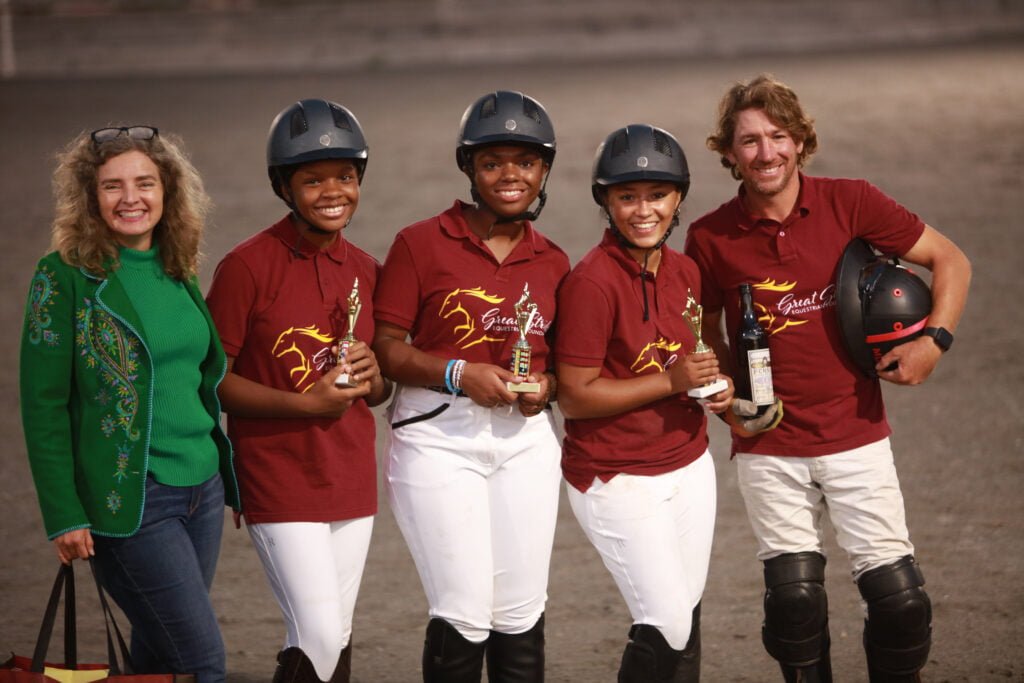
BRU: What does it take to excel as a polo player?
LS: Polo is strategic. You’re always thinking about your next move because you don’t want to foul anybody. If someone hits the ball, you can’t cross over the line where the ball has rolled. You’re always considering your defense and trying to block others from hitting. You’re basically colliding with each other, but very carefully.
The people who ride really well pick up Polo quickly. If anyone has a polo barn nearby, they should go try a couple of lessons!
BRU: How did your previous show background prompt what you’re doing with Great Strides Equestrian Foundation?
LS: I showed a lot as a junior, and when I had kids, I got them into riding. We worked hard and had wonderful success. We had a national champion pony and a bunch of top ten ponies at Pony Finals and a really good Junior Hunter, but it was so expensive and involved that there wasn’t much money—or time—for me to ride.
We did everything ourselves. I did all of the braiding, clipping, grooming, and hauling because we were showing at the top level without having top-level money. That was the only way I could make it work.
Over the years, so many people stepped in and helped us. Gary Duffy and Sue and Nina Leopold were just a few of those people. After all of the help I received, I wanted to do something that would give back.
I chose to create a polo program because the barrier of entry is a little lower than in hunters. Once you have some skill, there are jobs and travel opportunities associated with polo that allow you to ride a lot and aren’t just accessible to a select few.
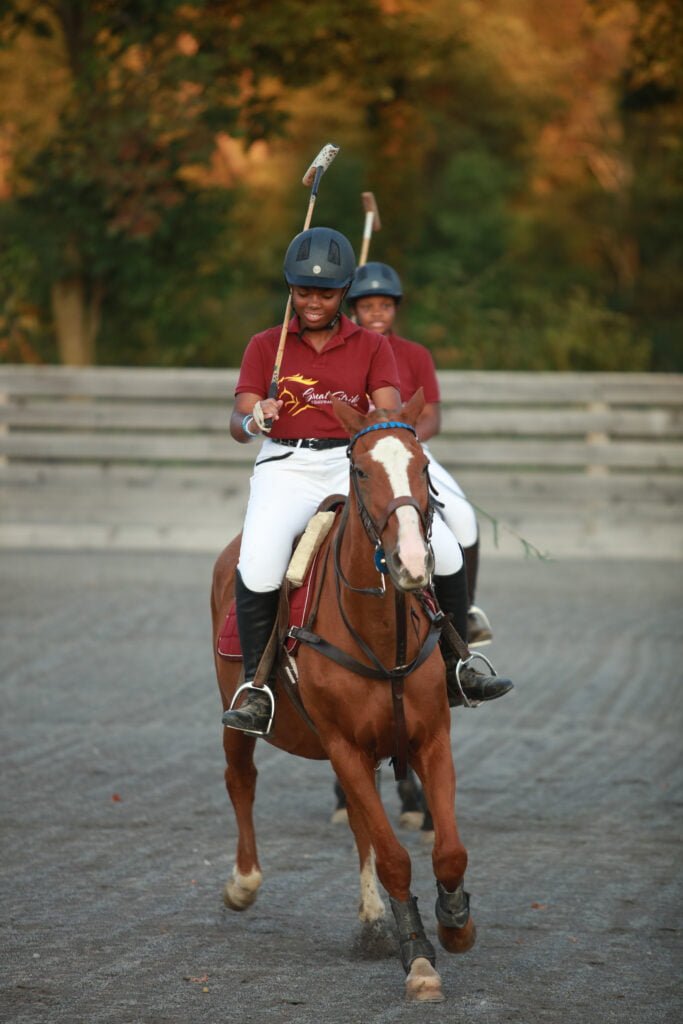
BRU: What inspired you to start GSEF, and what’s your goal?
LS: I was inspired by Lezlie Hiner’s program Work to Ride in Philadelphia. I wanted to do something similar, but I decided I didn’t need my own barn or horses—I just needed to raise money to pay for lessons.
My biggest supporter is Mario Dino, who runs the Saratoga Polo School. He’s amazing. He gives us a major discount and does a lot of work to make it possible for Great Strides kids to ride.
Dutch Manor Stable in Guilderland has also been so welcoming and supportive. Our participants take hunter lessons there during the winter when the polo horses go to turnout in Virginia or to Florida to play.
My goal is to serve kids who have no access to horses. If you live in Saratoga Springs and you really want to get to horses, you can. But if you live in downtown Albany or Troy or Schenectady, which is where the kids in my program come from, there aren’t any horses nearby.
Once I had my charitable paperwork together, I partnered with David Gordon at the Boys and Girls Club of the Capital Area. He needed another program specifically for girls and arranged transportation to Saratoga Springs. We’ve had three amazing girls in the program since June 2023 and three more starting this month.
BRU: What has it been like to work with these girls?
LS: We initially had six girls, but three decided horses weren’t their thing, which was understandable. Our remaining three program participants are Tolu Tijani, Amelia Graham, and Leigha Jackson, and they’ve been amazing!
When we started, some of the girls had never even petted a horse, and a little more than a month later, they played in their first charity match at our club. It’s crazy how quickly they picked it up and how good they’ve become.
This year, these girls will join our volunteers in mentoring the new participants, which I think will be really good for them.
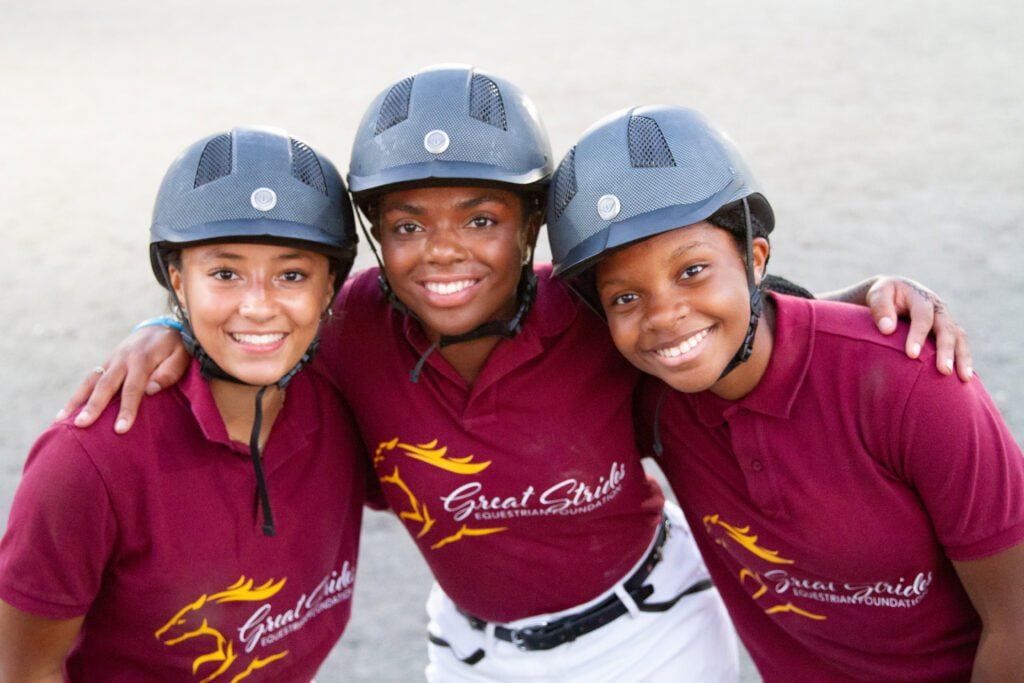
BRU: What is the mission of GSEF, and how can it change lives?
LS: I want our participants to work hard, have fun, and get out of the city to experience something they wouldn’t normally get to do. A program like this also teaches you the value of being on time, which seems like a small thing, but it’s so important. Showing up in life and being prepared will open doors for you.
I want our kids to have empathy for the horses and enjoy them as individuals. Horses deserve to be treated with the utmost dignity while you’re on their backs and while you’re around them.
We’ve also partnered with Saddle Up Scholars to offer our participants weekly tutoring. We’d love to connect our girls with top college polo programs. Being part of a team like that as a young adult gives you a supportive network you can rely on.
Horses allow you to connect with people in all different social circles because you have that shared love. No one else is quite as crazy as horse people about what they do and about their animals. We hope that GSEF will give the girls opportunities to find jobs and a community they can connect with wherever they go all over the world.
BRU: What does it take for a program like this to thrive?
LS: Like any charity, money is essential to fund the lessons and gear. Managing schedules is always tricky with teenage girls.
It can be difficult to fit everything in with their work and school, but their parents have been so supportive about helping with transportation when the Boys and Girls Club can’t.
BRU: What is the most rewarding part about creating a polo program for under-resourced riders?
LS: The rewarding part is working with these girls. They are absolutely amazing! They’re smart, they’re accomplished in school, they’re fun, and they have the best personalities. I’m really, really proud of them and I feel so lucky to work with them.
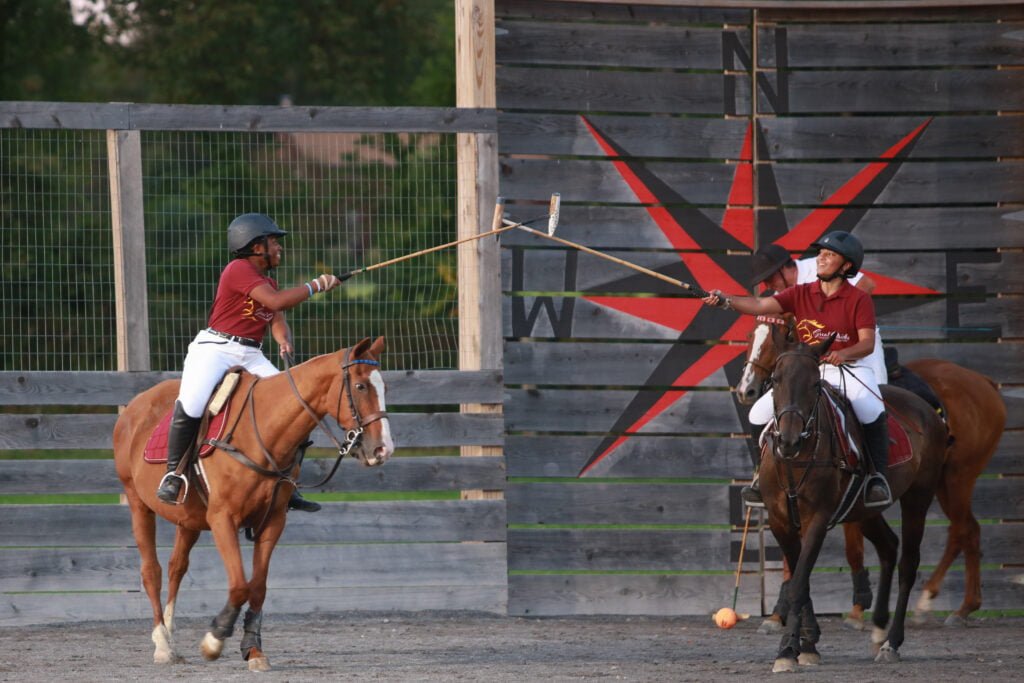
BRU: What would you tell kids who don’t have the finances to be involved with horses and don’t have access to a program like this one?
LS: I would say that the world is still your oyster! There’s so much information and knowledge available online now.
Professionals like Beezie Madden put out videos all the time on grooming, care, bandaging—all kinds of equestrian topics. Even if you can’t go and ride yet, there’s no harm in learning everything you can.
Many young people today spend too much time on Instagram comparing their lives to other kids’ situations and feeling jealous instead of focusing on the online and book resources they have access to.
You can also be a complete beginner and go join an IHSA college team or learn as an adult. You’ll figure out how to get there eventually, and if you have a lot of that knowledge ahead of time, you’re going to progress quickly.
BRU: Has there been a time horses have helped you through something difficult?
LS: Horses can help you through anything difficult. I’ve lived a pretty charmed life—probably because I’ve always had horses in it. But there are bad days, bad weeks, and sometimes bad months. Just going to the barn can create a safe place, and horses force you to be in the moment and fully present.
When I’m in a bad mood, my family has always said, “Hey, why don’t you go for a ride?” I come back in a much better head space. Being around horses can change your whole life.
To connect with Laurie or support GSEF, visit the Great Strides Equestrian Foundation website, or reach out to her on Instagram or Facebook.
How have you seen horses change lives? Please consider sharing!
